
The Hydrogen Economy Program
-
Applications
Application Closed
-
Pricing
Complete Program: $2,970 | One Badge: $1,100
-
Schedule
Check back Fall 2025 for schedule updates.
Program Overview
With the energy industry going through dynamic transition, energy professionals – current and future – need to be informed and equipped to meet challenges of today and tomorrow. The Hydrogen Economy is an essential program that provides key insights about this key component of the evolving global energy system. Designed and presented by industry leaders and accomplished faculty from the University of Houston, the program offers a unique balance of industrial expertise and academic rigor.
The Hydrogen Economy is offered jointly by the University of Houston and the American Institute of Chemical Engineers. Successful candidates will receive digital badges from UH Energy and certificates from AIChE for each of the three course modules.

Informational Webinar
Check back Fall 2025 for schedule updates.
Why This Program?
The energy transition is in progress, and the world is grappling with the energy trilemma: How can we supply energy that is affordable, secure and reliable, and environmentally responsible, for everyone? There is no single solution to this formidable challenge. But hydrogen is a key component of the most credible sustainable energy scenarios, with significant growth projected for the global energy system over the next 30 - 50 years.
Hydrogen is currently used heavily in the process industries, and it is seen as a significant future replacement option for the fossil fuels that are now used in power generation, transportation, and industry. However, most hydrogen today is produced from fossil energy sources. It will need to be decarbonized if it is to take its place as a dominant player in sustainable energy.
Our interactive, online educational program shares insights into the technology, economics, policy, and business drivers and barriers for hydrogen, both in the short term and in the long term. It examines hydrogen’s production, transportation, safety, use, and commercial opportunities, and considers both onshore and offshore applications. It also includes real time review meetings with instructors, and a capstone project to consolidate the learnings, to better equip students with skills, knowledge and expertise to thrive in the hydrogen economy.

Up to 10-fold growth in hydrogen demand is projected if adopted as an energy vector to decarbonize heavy duty transportation and other difficult-to-decarbonize industry sectors. 1-3
Who should attend?
The Hydrogen Economy Program caters to two distinct groups:
- Industry Professionals: Those already in the energy industries are seeing significant changes almost daily. The Hydrogen Economy Program provides new information, new insights, and new skills for professionals to help them manage new demands and be a valuable part of the energy transition.
- For Future Energy Professionals: This program is ideal for students preparing themselves for a successful energy career and professional life. The Hydrogen Economy Program provides a unique perspective and skillset, giving students a competitive edge, understanding, and competence as they enter the energy marketplace.
Program Pricing
INDIVIDUAL BADGE PRICE:
$1,100
EACHCOMPLETE PROGRAM PRICE (3 Badge Program):
$2,970
Discounted price of $2,770 for AlChE Members and UH AlumniSchedule
Check back Fall 2025 for schedule updates.
Credentialing Overview
This micro-credentialing program delivers a multi-disciplinary understanding of challenges and solutions involved in developing a viable hydrogen economy. It is taught by world-class instructors, including leaders from industry and the marketplace and accomplished faculty from the University of Houston, the Energy University, in the Energy Capital of the World.
The program is offered in 15-hour modules, each module taking place over a three-week period. Digital badges are awarded for each module, and a set of three badges earns a “Silver Belt” from UH Energy. Successful students will also receive a certificate of completion from AIChE.
The Hydrogen Economy is a part of UH Energy's Sustainable Energy Development portfolio. The badges and belts provide a permanent record, endorsed by UH Energy and the University of Houston, that can be made a part of your resume to credential your new skills.
Silver Belt
This Silver Belt program builds upon the introduction to the energy transition given in the Bronze Belt in Sustainable Energy Development. It provides a deeper look at hydrogen – one of the most promising vehicles for decarbonizing the global energy system. The three badges explore hydrogen production, hydrogen transportation, safety and use, and the commercial opportunity for hydrogen. A capstone project is included, to consolidate the multidisciplinary learnings of this exciting new program.
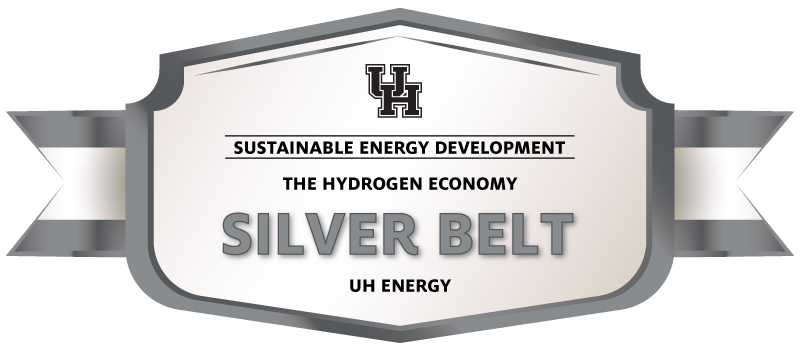
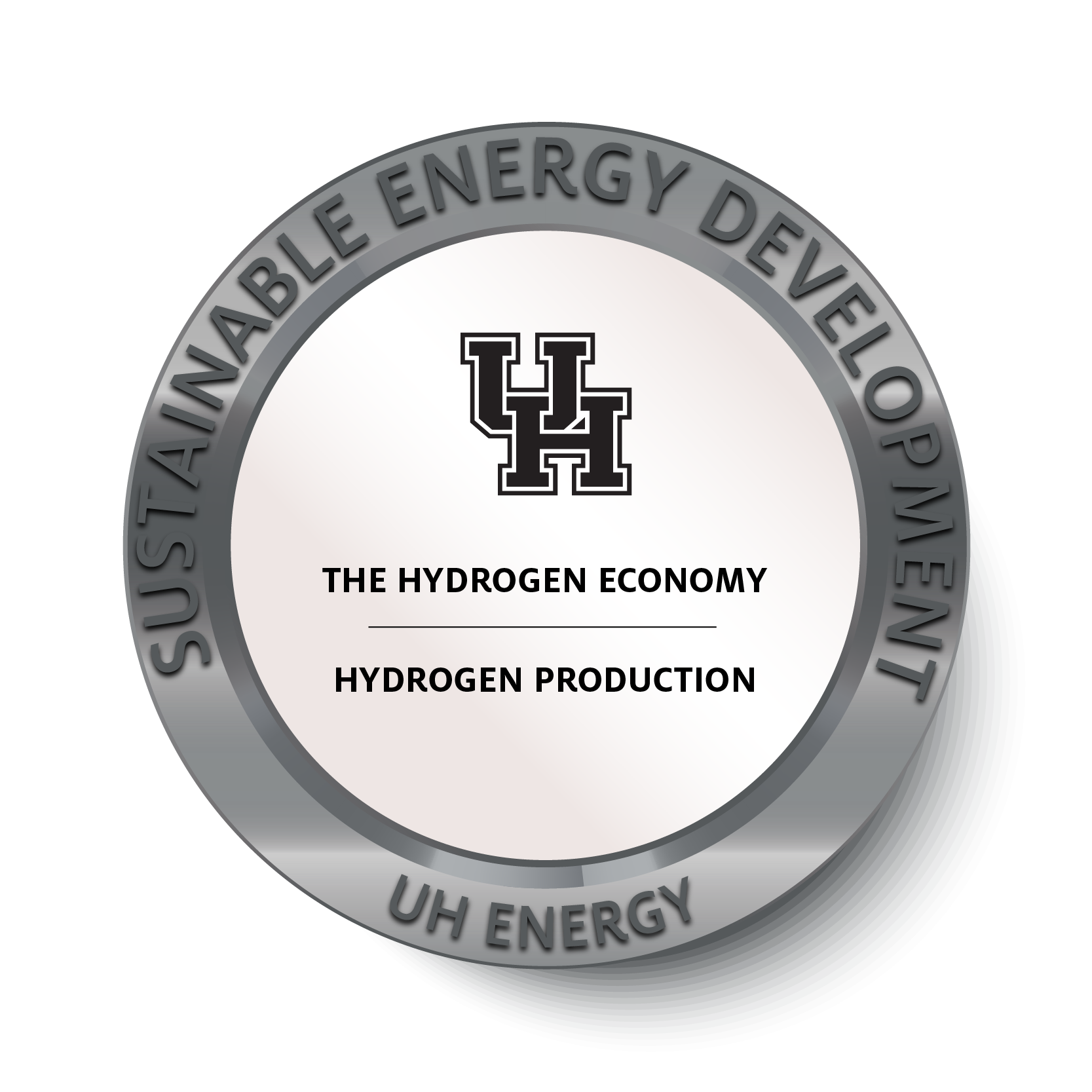
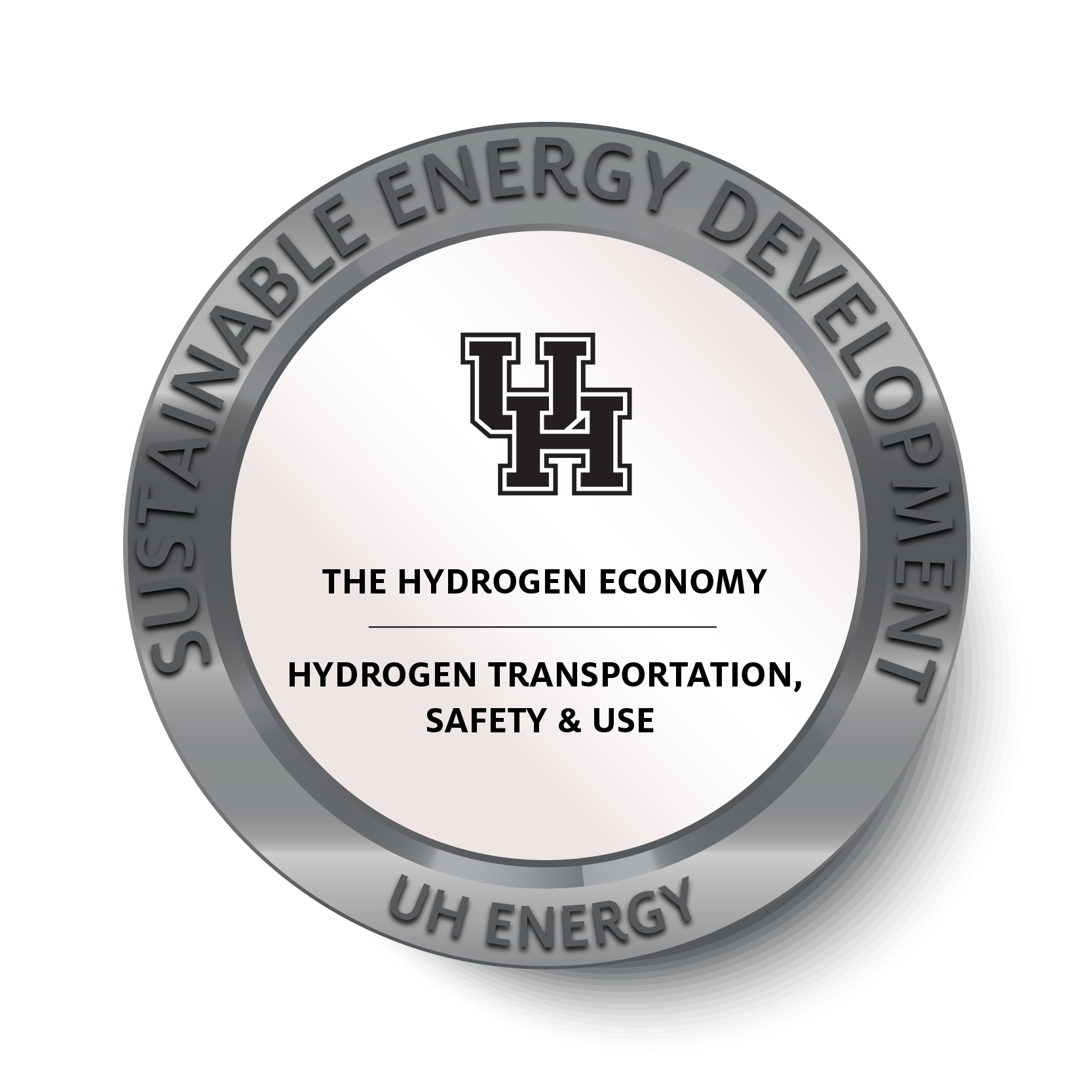
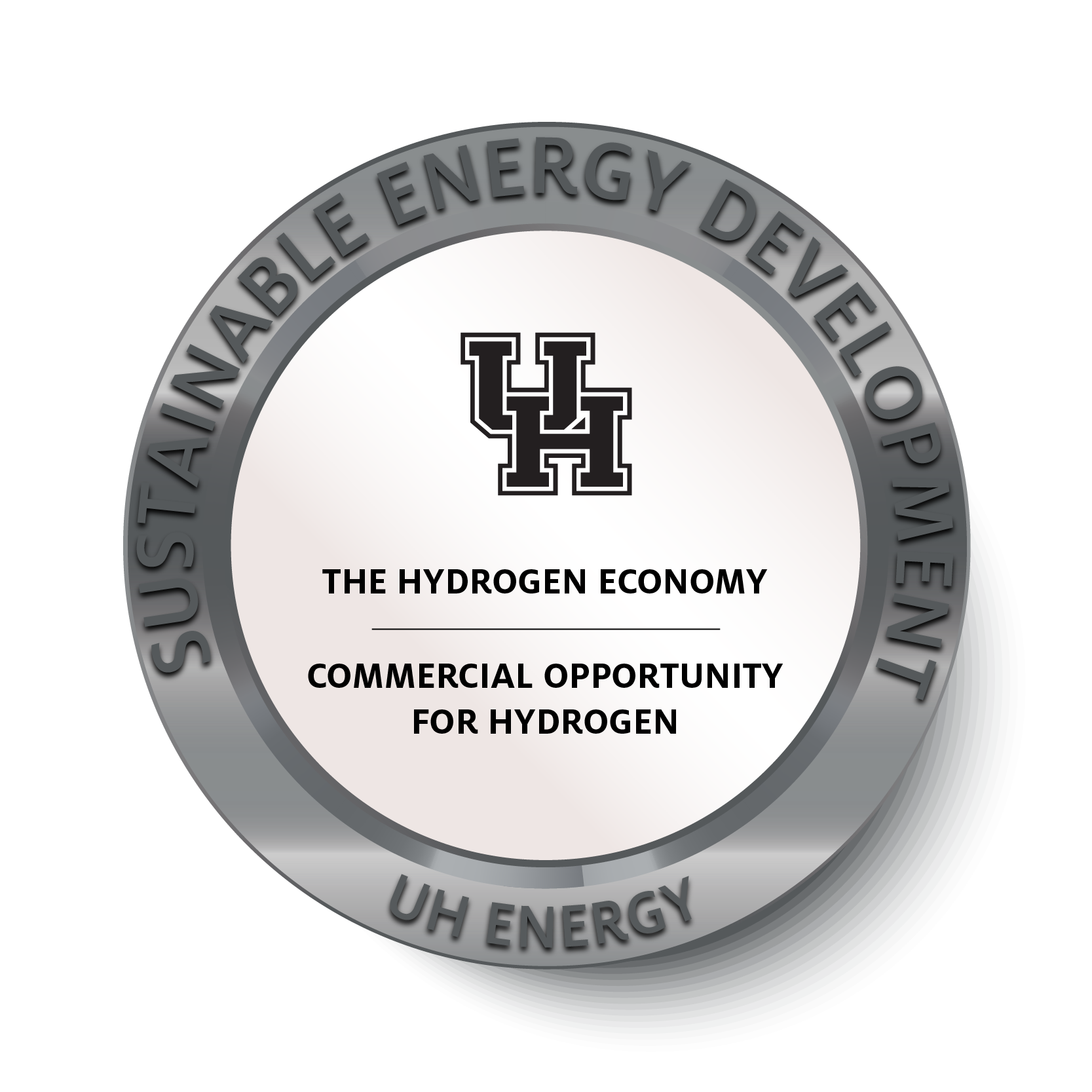
Instructors
UH INSTRUCTORS

Greg Bean
Executive Director of the Gutierrez Energy Management Institute, Bauer College of Business, University of Houston

Dr. Birol Dindoruk
American Association of Drilling Engineers Endowed Professor, University of Houston

Dr. Ramanan Krishnamoorti
Vice President of Energy and Innovation, University of Houston
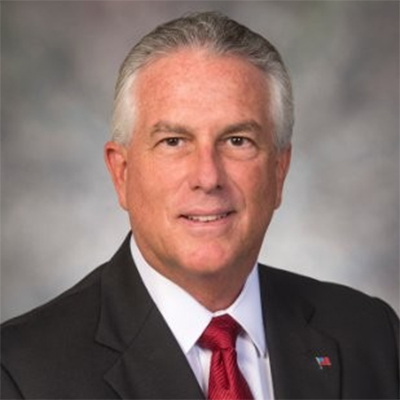
Charles McConnell
Executive Director, Center for Carbon Management in Energy, University of Houston

Dr. Ram Seetharam
Energy Center Officer, Hydrogen Program Lead, University of Houston

Dr. Joe Powell
Founding Executive Director, Energy Transition Institute, University of Houston
INDUSTRY INSTRUCTORS

Nigel Jenvey
Vice President of Energy Transition Project Development at Baker Hughes

Andy Steinhubl
Chairman of the Board, Center for Houston’s Future (CFH)

Brian Maxwell
Founder and CEO, Green Hydrogen International

Tim Cortes
Chief Technology Officer, Plug

Dr. Olga Marina
Leader, High Temperature Steam Electrolysis

Dr. Katherine (Kathy) Ayers
Vice President of R&D, Nel Hydrogen US

Paul Munsterman
Director of Business Development, Large Projects at Linde
Learning Objectives
After successfully completing this program, participants will be able to understand:
- Key characteristics and drivers for hydrogen as the decarbonization fuel of choice
- Fundamentals for the existing hydrogen market, and how it is poised to change
- Policy and strategy: Critical factors in building The Hydrogen Economy
- Hydrogen as a means for transporting and storing renewable energy
- Current and emerging options for producing hydrogen, including offshore options
- Basics of hydrogen safety
- Technical options for storing and transporting hydrogen, including decision factors
- Fuel cells and their roles in transportation, in the electric grid, and in domestic and commercial power supply
- Hydrogen fueled vehicles – from forklifts, trains and ships to aircraft
- Hydrogen as a fuel to decarbonize industry
- Trade-offs for use of hydrogen vs. electrification vs. advanced renewable hydrocarbon fuels as vectors for decarbonization
Credentialing Program Prerequisites
Either:
- Rising senior in a bachelor’s degree program or graduate student; business, engineering, or technology preferred.
- Industry professional
References
- Hydrogen decarbonization pathways: Potential supply scenarios, The Hydrogen Council, January 2021.
- Mark Ruth et al., The Technical and Economic Potential of the H2@Scale Concept within the United States, NREL Report (2020).
- Hydrogen Roadmap Europe: A sustainable pathway for the European Energy Transition, Fuel Cells and Hydrogen, Publications Office of the European Union, Luxembourg: 2019.
Additional Program Resources
The Hydrogen Economy Information Session
RECENT PROGRAM CAPSTONE PROJECT HIGHLIGHTS
The Hydrogen Economy Program experience culminates with a capstone project. The project is based on developing and defending a business plan for a clean hydrogen start-up venture, demonstrating knowledge of the principles taught in the course. This is augmented by additional independent research related to the specific type of business model, technology deployment, and location chosen. Students can either work individually or form teams to evaluate their ideas, and then present them to the class and the panel of judges (aka the shark tank). Past cohorts have shared some wonderful ideas and creative presentations, and the whole activity was great fun. Below are summaries of the winning projects.
Fall 2024
-
Extended Range Aerial Sensing with Hydrogen Powered Drones
Team: Mohamad Elsayed, Jenni Rogers, Amir Eskafyan, Saiyid Kamal, Sada Iyer
-
H2 Production from Wastewater Treatment Plants
Team: Alberto Barud, Andres Dillon, Ozum Ozasaygili, Emo Obadiah
-
Hydrogen Hub Alberta for Green Future
Team: Smita Sangale, Shawna Yang, Billy Newby
Spring 2024
-
Business Roadmap for Utilizing Hydrogen in Houston
Team: Cody Johnson, Sabine Brueske, Saalya Rickhi, and Thien Nguyendo
-
HyPower Data Centers
Team: Meaghan Anderson, Ruben Caparros, Dillon Frost, Priyanka Singh, Hena Venugopal, Jason Wray
-
SOEC at Scale
Team: John Baily and Dan Czubik
Fall 2023
-
H2 Production - A Safe and Reliable Solution for Las Vegas
Team: Noel Skwiot, Mary Edwards, Lynn Lyon, Monica Davis, Jerson Wattie, and Katherine Aliste
-
Clean Midwest - Hydrogen at O’Hare Airport
Team: Betsy Cole, Jesse Johnson, Mitesh Joshi, Shannon McAvoy
-
Coastal Corsairs Summary
Team: Amy Warren, Xinlei (LeiLei) Li, Rick Cunningham
-
Leveraging Green Hydrogen Opportunities At Standing Rock
Team: Adam Rose, Audrey Hooper, Christopher Brooks, Shuyun Li
Spring 2023
-
Green Ammonia Refueling Stations along Major Shipping Routes
Team: Marc Schneider, May 2023
-
H2 Airport Hub
Team: Richard Henahan, Peter Diakow, Lloyd Rude, Gregory Bohn
-
Integrated Energy Systems for Nuclear Produced Hydrogen
Team: Nu-H2, Mike Curtis and Mikaela Dressendorfer, May 2023
-
Slush H 2 for long-distance shipping
Team: Miguel Gonzalez, Vijay Ramakrishnan
Fall 2022
-
Hydrogen use for mining applications
1st Place
Team: H2Mining (Anna Gretchina & Rob Haun)
-
H 2Singa Hydrogen Valley Jurong Island Singapore
3rd Place
Team: Shivaprakash C Rao, Head of Consulting and Energy Transition, BMT Asia Pacific
-
Design of clean steel with Hydrogen
Team: Joao B. S. Gonzaga, Sr. Director of engineering, Gerdau Steel
Spring 2022
-
Biogas to Hydrogen for Asphalt Heat
1st Place
Team: Ryan Davis, CJ Okafor, and Ozgur Ozen
-
H2arvest
1st Place (tie)
Team: Brian Peterson
-
Hydrogen-Powered Vessels for Offshore Wind Service
Team: James Abrams, Gareth Burton, Joseph Rousseau, Derek Schmidt
Summer 2021
-
H2 Urban Data Centers
1st Place
Team: Graham Jones, Carlos Rojas, Chris Smithson, Catherine Sotelo
-
Centralized Clean H2 Production in Texas
2nd Place (tie)
Team: Aaron Totemeier, Ali Oktay, Ricardo Chona
-
Solid Oxide Reactor System
2nd Place (tie)
Team: Fritz Pierre
-
A Vision for a Houston Low-Carbon Hydrogen Hub
Honorable Metion
Team: Kay McCall, Brett Perlman, Dana Wells
Testimonials
-
Ricardo Chona - Business Development Manager
"Excellent program from UH, outstanding instructors and guest speakers. "
-
Kay McCall - Board member and advisor
"Thank you to UH Energy for presenting the Hydrogen Economy program for those of us wanting more than a superficial view of the potential role of hydrogen in the energy transition. "
-
Ram Seetharam – Energy Center Officer & Hydrogen Lead at Univ of Houston
"Completed Badge 1 on Hydrogen Production - highly recommend this micro-credential course at UH Energy."
-
Daniela Ismail, EIT, MBA – Zero Emission Business Development Manager/Women in Hydrogen 50
"I´m so happy to have completed the Hydrogen Economy Silver Belt Program at the University of Houston."